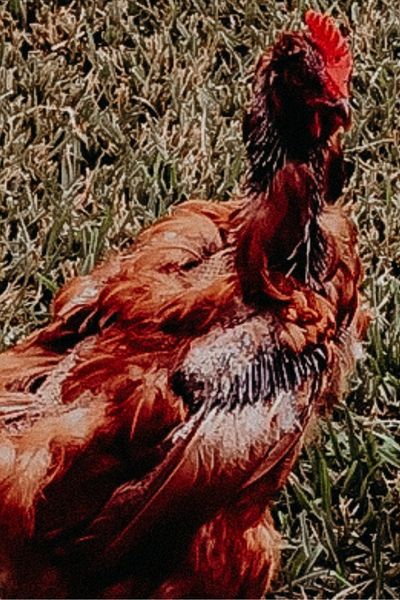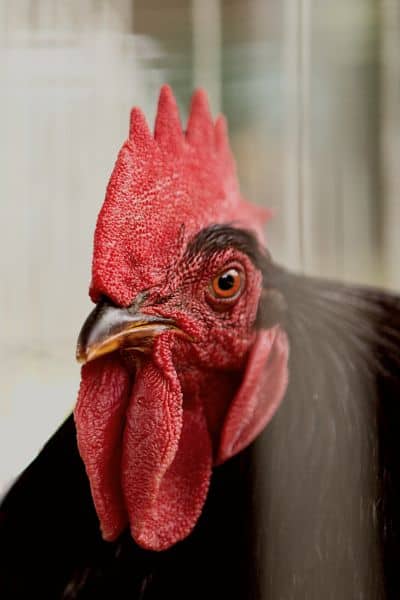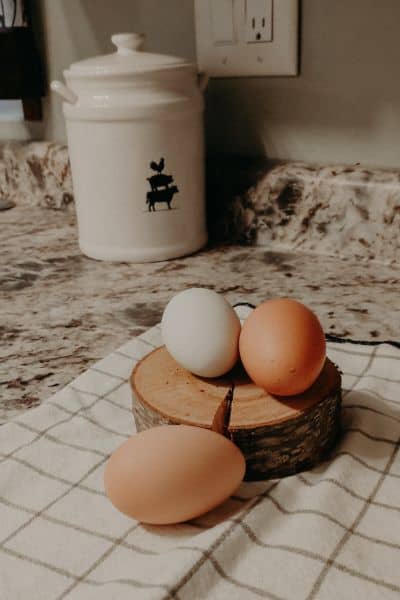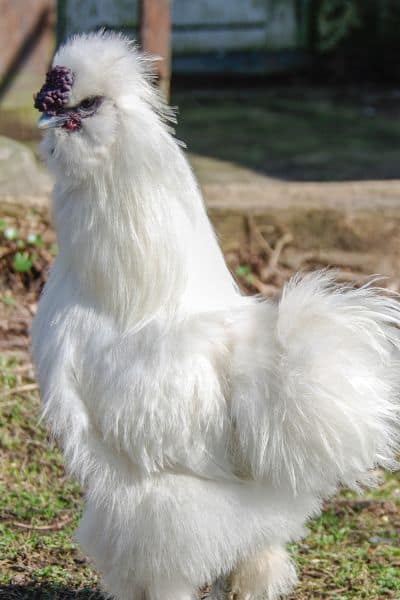11+ Tips For Keeping Your Chickens Water From Freezing This Winter
Winter can be a tough time for chickens and us as chicken keepers’ chores take three times as long and there always seems to be something wrong when the weather is bad. Breaking ice out of waterers is one of the most time-consuming chores and the most labor-intensive.
But with the right tips and tricks you can make sure that your chickens stay warm and watered throughout the season.
Keeping your chicken’s water from freezing is not always foolproof especially if you live in the far north. But if you do your best and are able to keep the water from completely freezing over for hours before you come back out to do chores the next day your chickens are going to be fine.
Thankfully, there are several methods you can use to help keep their water from turning into a solid block of ice. But first, off let’s get some idea of how long you have to before the water freezes normally at a basic temperature.
How Long Does It Take For 1 Gallon Of Water To Freeze At 32 Degrees?
Frozen water can be the bain of a backyard chicken keeper’s existence. So how long does it take for one gallon of water to freeze at 32 degrees? It’s an important question to ask if you’re keeping chickens in colder climates.
The answer is it depends on several factors such as temperature, humidity, and wind chill. Generally speaking, it could take anywhere from six hours up to two days for a gallon of water to turn into ice when temperatures drop below freezing. That said, there are ways you can keep your flock’s drinking water surface from freezing during cold weather.
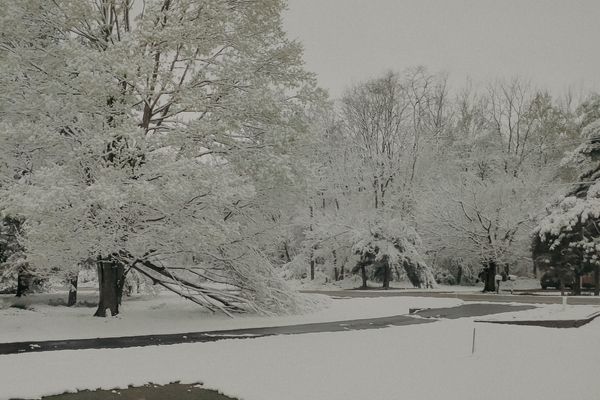
Non-Electric Options
These first few strategies are going to help you save on the electric bill. Who doesn’t want that? I would also recommend trying these first because you don’t want to add electric heaters to your coop in order to keep drinkable water unless you absolutely have to.
While keeping the water temperature above freezing is important chicken coops are HIGHLY flammable and will go up in minutes.
There is nothing worse than seeking your livestock housing to go up in flames with them inside. (I am trying not to be too graphic but it’s important you understand how important it is.
Move The Chicken Waterer In The Coop Instead Of Leaving It Outside In The Chicken Run
I always feed my chickens outside the coop 99% of the time. It forces my fair-weathered birds to come outside even when the weather isn’t so fun… I know I’m a terrible chicken momma.

Annnyway…. When you know the weather is going to be really cold and it won’t take long to freeze the best thing you can do is move the feeders and waterers into the coop.
Chickens put off a lot of body heat and if they are in the coop it can be as much as 30 degrees warmer in the coop than it is outside.
Just put the waterer out of the way where it won’t get in the way of the chickens trying to get up on the roosting poles. You don’t want the chickens falling off into the water if they miss. Which can happen if someone is determined to get up somewhere and there isn’t enough room.
Do The Deep Litter Method
If you are thinking of trying the deep litter method in your chicken coop, It’s a great way to keep your chickens warm during cold weather and make sure their water doesn’t freeze. Plus, the deep litter method is easy to set up and maintain!
To get started, begin by laying down an 8-10 inch layer of wood chips or straw over the floor of your coop. The next step is to let a thin layer of manure accumulate on top – this creates an environment where bacteria can break down waste and create heat as they work. The chickens do the turning over for you on their own.
Its literally the easiest way to manage your coop over the winter and you’ll be able to keep your chickens warm without using electricity or other energy sources.
Now I’m not a total fan of this just because I like things cleaned up and neat. But I can’t deny that it does help add heat to the coop. So it is a good idea to do if you live in a really cold area.
However, I would recommend you use sealed wood or have some kind of flooring that will not decompose as easily as bare plywood. Because essentially you are putting a chicken poop compost pile above it. And that will cause wood to rote much faster.
Insulate Coop and Water Container
Winter brings with it the joy of snow and the dreaded task of keeping your chickens’ water from freezing. Keeping them hydrated during this time is essential to their health, but can be frustrating when the temperatures plunge below freezing.
Insulating your chicken coop and water container is an easy way to keep your chicken’s body temperature up water-trough thawed without a water heater.
You can use things like straw bales around the outside of the chicken coop, foam pipe insulation, foam fishing coolers, plastic pails or buckets, and a little bit of creativity. With just a few steps, you can ensure that your chickens have access to clean, unfrozen water all season long!
Don’t Know Where To Start With Your Backyard Farm?
Its time to start a backyard farm that fits YOUR dream lifestyle, Backyard Farm Foundation is the answer to setting a clear plan and achievable goals for starting your dream backyard farm or homestead.
ONLY $9!!!!
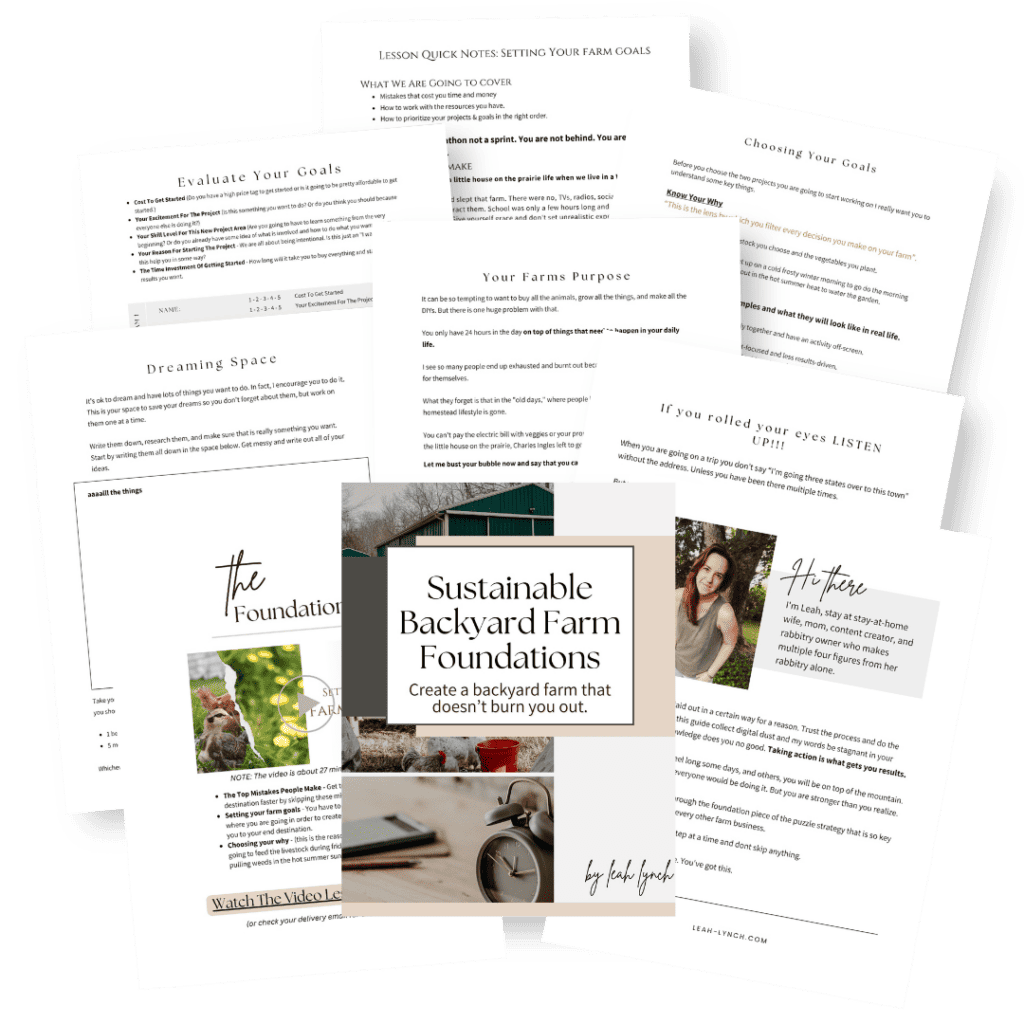
Swap Any Metal Waterers for A Black Rubber Tub
If you have metal waterers they are going to help speed up the process of freezing the water. Make sure to swap them out for better options like black rubber buckets during the winter if possible. Or have winter waterers and summer ones if you really like your metal ones.
I love these rubber bowls for all my animals and they do great in the winter because they do slow down the freezing process, they are black so they attract the sun’s rays and hence the heat if you sit them in a sunny spot.
But they are also much easier to just flip the water bowl over and you can step on it to get the ice out and refill it with fresh water making your chore time much faster, instead of worrying about damaging the waterer that is metal or plastic waterers.
Large 8 Quart Black Rubber Pan
These are the larger version of what I use with the rabbits. They work great for our chickens and I can easily break ice out of them without worrying about breaking them.
Its Ok To Use A Heated Waterer Just Be Careful
I don’t think using a tool to keep a heated water base is completely off the table. Just be careful of all the electrical outlets and wires as well as keep the power supplies out of reach of the chickens. They are nosy critters and will mess around with stuff and cause big problems.
Use Heated Chicken Waterers
It’s no secret that keeping chicken water from freezing in cold weather can be a challenge. But with heated chicken waterers, you can make sure your chickens stay hydrated all winter. Heated chicken waterers provide a steady supply of thawed water to the birds and can be a great asset for any poultry keeper!
These devices are easy to use and come in various shapes and sizes so they fit easily into coops or pens. Most heated waterers are powered by electricity and designed to keep water free of ice even when temperatures plummet into the single digits Fahrenheit. With one of these heated containers, you don’t need to worry about changing out frozen water every morning – saving you time and energy!
One drawback is you will have to have to run an extension cord out to your coop. Which might prove to be challenging and can even be a fire hazard but if you only use it during the really cold months or a cold snap it will save you a lot of effort.
Consider Alternatives To Keep Your Chickens Water From Freezing
If you’re a chicken keeper who’s concerned about keeping your flock safe from the cold winter weather, think about alternatives to just relying on oils and salt for keeping your chickens’ water from freezing.
There are many simple and inexpensive ways to keep your chickens’ water sources ice-free during the colder months.
- Use an old tire and stuff it with straw and place your water bucket down inside the tire for insulation.
- Add ping pong balls to the water. This will keep the water in motion so it will take longer to freeze.
- You can use a tank heater if you have a large water tub you are trying to keep from freezing.
- Get a bucket heater. – Find Here On Amazon
- Use heated waterers that are for dogs at most feed stores in the winter. – I love these because they have the cords covered under the bowl and they have some chew protection so they are not a sensitive heating option.
- Bring your chickens warm water. (But NOT hot water)
- Give more water, not less. While the chickens will not be drinking as much water during the winter the larger surface area is harder to freeze. Filling up a larger water trough will cause the freezing to happen in a longer amount of time.
Heating Sources I Would Be Carful With
There are some ideas out there that are ok but I would caution you with them and really make sure these were the last things you could do to keep the surface of the water from freezing.
- An aquarium heater – This is a neat idea but I would be very careful with this one because chickens are super nosy and peck at things to simply check them out. These water heaters are very sensitive and you do not want that glass breaking into your chicken’s fresh drinking water.
- A light bulb in a cinder block – Again another good idea but this is even more dangerous than having a heat lamp in your coop. If that bulb slides out or sits on the bedding for even a few hours it could start to heat up and cause a fire hazard.
How Does Salt Keep Water From Freezing
First off let me be clear that it is not recommended that you add salt directly to your chicken’s water. With that cleared up let’s get into how it works.
Salt is a simple and inexpensive solution for keeping water from freezing in the winter months. Salt has a unique property that prevents water from freezing – it keeps a lower freezing point for the cold water at which ice will form.
Salt helps keep water liquid even when temperatures drop below zero degrees.
Don’t Know Where To Start With Your Backyard Farm?
Its time to start a backyard farm that fits YOUR dream lifestyle, Backyard Farm Foundation is the answer to setting a clear plan and achievable goals for starting your dream backyard farm or homestead.
ONLY $9!!!!

The Salt Water Bottle Theory
The idea is that you full a bottle full of salt water and put that sealed closed water bottle into the watering bucket.
Some people say this works and honestly, it doesn’t take sense to me. If you think about it adding a bottle filled with salt water to the water source is going to work just like a homemade ice cream maker would. Fresh Eggs Daily did an experiment and the bucket with the salt water froze faster.
Monitor Temperatures Regularly
If you are regularly monitoring the temperatures this will help you know when to get prepared for the really cold season. This will help you learn what temperatures are going to be the most likely to cause the water to freeze the quickest based on where you are keeping it. This will enable you to make sure that your chicken’s water supply doesn’t freeze over when they need it. While they will drink significantly less it does help them stay warm just as much as having access to food does.
Taking the time to check the temperature of your coop and the weather outside will help you get a good idea of the measures you have to take when the weather starts changing.
A simple thermometer will tell you if the temperature has dropped too low, which means it’s time to take action and protect your chickens from freezing temperatures. But it will also help you have the peace of mind of being able to see what temperature it is in the coop and being able to see that they are indeed ok and can handle the temperatures even though you may feel miserable.
Chicken coop thermometer
Vertical Thermometer and Hygrometer – you can hang this on the inside of the coop to know how warm it is in the coop.
Winter is a special season requiring extra preparation for A LOT of extra tasks. Many backyard chicken keepers are familiar with the frustrations of their chickens’ watering system icing up on cold days. But preparing for winter doesn’t have to be a hassle! With some simple tips and tricks, chicken owners can make sure their flock’s water supply will remain drinkable throughout the cold snaps.
The most important trick to remember when it comes to keeping your chickens’ water from freezing is to provide adequate insulation. It’s probably the easiest thing to do. Do the best you can and know that they will be ok. They have the number one insulator around their bodies all the time. Why do you think we make winter coats filled with feathers? Because it’s WARM.
Start with the nonelectric options first and escalate as needed. You got this.










